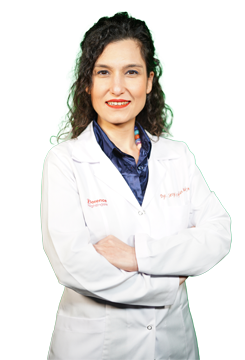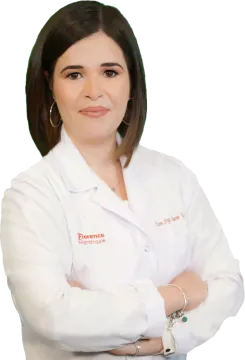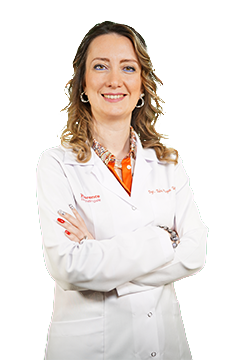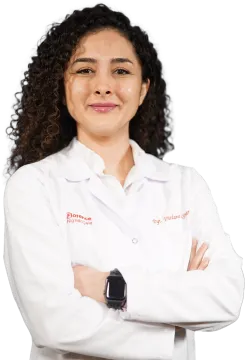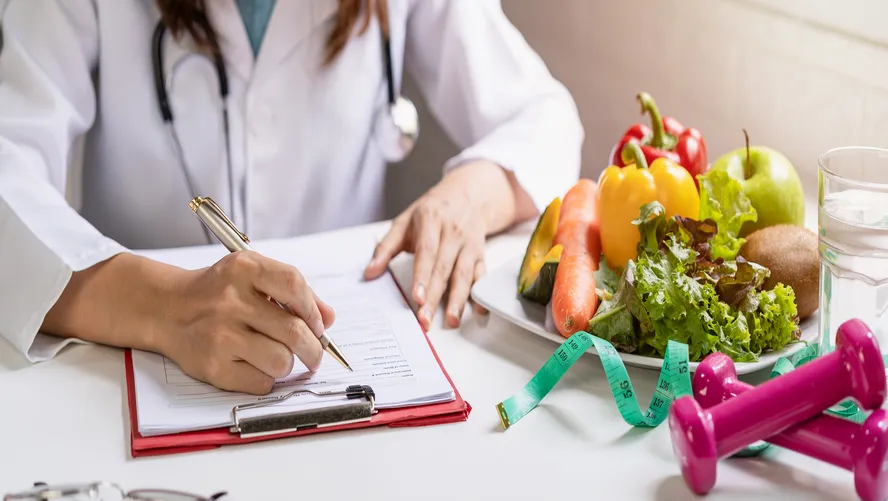

What is the Department of Nutrition and Diet?
The Nutrition and Diet department is an important health discipline that applies correct eating habits to protect and improve human health. This department aims to evaluate the nutritional status of individuals and societies, create healthy eating plans and offer dietary recommendations for the prevention or treatment of various diseases.
According to the World Health Organization (WHO) 2022 report, approximately 1.9 billion adults worldwide are overweight or obese. This highlights the importance of the Nutrition and Diet section.
About the Department of Nutrition and Diet
The Department of Nutrition and Diet is a multidisciplinary field that combines various branches of science such as food science, biochemistry, physiology and psychology. This department examines the effects of nutrients on the body, metabolic processes and the nutritional needs of different age groups.
Individuals who receive training in Nutrition and Dietetics can obtain the title of dietitian after graduation and work in various areas of the health sector.
Who is a Nutrition and Diet Specialist and What Are Their Duties?
A Nutrition and Dietetics specialist is a health professional who has at least a 4-year university education and specializes in nutritional science. The main duties of these specialists are as follows:
- To evaluate the nutritional status of individuals and create and follow up personalized healthy nutrition programs.
- Planning special medical nutrition treatments for chronic patients such as diabetes, heart and obesity.
- Preparing therapeutic diet programs for diseases.
- Monitoring the nutritional status of patients and updating diet programs when necessary.
- To provide nutrition training to improve public health.
Diseases Treated in the Department of Nutrition and Dietetics
The Department of Nutrition and Dietetics plays an important role in the prevention and treatment of various diseases.
The main diseases treated in this section are:- Obesity and Weight Management: Obesity, which occurs as a result of Western-style diet, unbalanced nutrition and inactivity, is addressed by dietitians with special nutrition programs and lifestyle changes.
- Diabetes (Type 1 and Type 2): Diabetes, which requires dietary adjustments to control blood sugar, is one of the areas of expertise of dietitians.
- Cardiovascular Diseases: Special nutrition plans should be created to protect cardiovascular health.
- Gastrointestinal Disorders: Special diet programs are prepared for digestive system disorders.
- Eating Disorders: Eating disorders, such as anorexia nervosa, which can lead to serious health problems, are treated in collaboration with dietitians and psychologists. Bulimia is an eating disorder in which recurrent episodes of overeating and subsequent compensatory behaviors are seen. Dietitians apply strategies to develop regular and balanced eating habits in these patients.
- Food Allergies and Intolerances: Personalized nutrition plans are created for celiac disease, lactose intolerance or various food allergies.
- Food Intolerance: This concept, which is confused with food allergy, refers to the body's negative reaction to certain foods. In cases such as lactose or gluten intolerance, dietitians should create personalized nutrition plans.
What are the procedures and examinations performed in the Nutrition and Dietetics Department?
For a proper nutrition plan, the patient must undergo some tests and procedures:
- ALCAT: Measures white blood cell changes and the immune system as a result of nutrients.
- LEAP MRT: The patient's lymphocytes are incubated with the allergen.
- ELISA: The amount of immunoglobulin types is determined.
- MICROARRAY-ELISA: Ig values are checked with blood taken from the finger.
In addition to these tests, anthropometric measurements, body composition analysis, food consumption records and evaluation, interpretation of biochemical tests and metabolic rate measurement are also performed.
When Should You Go to the Nutrition and Diet Department?
It is important to consult a dietitian in the following cases:
- The need to gain or lose weight
- Chronic disease diagnosis (diabetes, hypertension, etc.)
- Digestive system problems
- Food allergies or intolerances
- Pregnancy and breastfeeding periods
- The need for athlete nutrition
- Nutrition in old age
- Individuals who cannot take food orally (by mouth) need enteral or parenteral nutrition.
What is Done During a Nutrition and Diet Examination?
Nutrition and diet examination involves a comprehensive evaluation process. In this process, first, the patient's detailed health and nutrition history is taken. Then, anthropometric measurements are made to determine body composition. The dietitian thoroughly evaluates the patient's food consumption habits and analyzes the current diet. Laboratory results are examined to better understand the metabolic status. At the end of all these processes, a personalized nutrition plan is created that suits the patient's needs, lifestyle and health goals.
What are the Health Technologies Used in Nutrition and Dietetics Practices?
Various advanced technologies are used in modern nutrition and dietetics practices. The most important of these is Bioelectrical Impedance Analysis (BIA) devices, which measure body fat percentage and muscle mass. Indirect Calorimeter devices, which precisely measure energy expenditure, are also frequently used. Digital applications developed to record and analyze food consumption make the job of dietitians easier. Nutrigenetic Tests are used to provide nutritional recommendations based on genetic structure, while smart scales, microplate readers and fitness tracking devices help monitor patients' daily activities and weight changes. These technologies provide dietitians with information on making more accurate assessments and creating personalized, effective nutrition plans.
